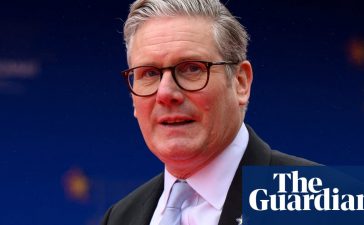
© Reuters. FILE PHOTO: European Union flags fly outside the EU Commission headquarters in Brussels, Belgium September 19, 2019. REUTERS/Yves Herman/File Photo
By Andrew Gray and Jan Strupczewski
BRUSSELS (Reuters) -European Union leaders head into a high-stakes summit for Ukraine on Thursday, with Hungarian Prime Minister Viktor Orban blocking both the start of EU membership talks and 50 billion euros ($54 billion) in financial aid for Kyiv.
The summit comes at a crucial time in Ukraine’s war against Russia’s invasion, after a counter-offensive failed to make major gains and with the Biden administration so far unable to get a $60 billion aid package for Kyiv through Congress.
If EU leaders give a green light to membership talks and the four-year financial package, Kyiv will be able to claim a geopolitical victory. Failure to agree would likely be greeted by Moscow as a sign of faltering Western support for Ukraine.
All of the EU’s 27 national leaders except Orban have backed the start of accession talks. But such a decision requires unanimity and the Hungarian, who cultivates close ties to Moscow, has insisted Ukraine is not ready for such a step.
On the eve of the two-day summit, Ukrainian President Volodymyr Zelenskiy said his country had carried out the necessary political reforms to get the go-ahead and urged the EU to honour its commitments.
“I count on EU leaders recognizing Ukraine’s efforts and taking this historic step,” he posted on social media after a phone call with Italian Prime Minister Giorgia Meloni.
“Ukraine fulfilled its part and proved that it can achieve tremendous results despite unprecedented challenges.”
Zelenskiy, writing early on Thursday on Telegram, said he had also spoken to new Polish Prime Minister Donald Tusk and “heard words of sincere support”.
Tusk said on the eve of the summit that his role would be to strengthen European determination to support Ukraine against Russia’s invasion. “Apathy on Ukraine is unacceptable,” Tusk said, adding that he will try to convince “some member states”.
Orban has cited corruption in Ukraine and other concerns in justifying his stance. But EU officials and diplomats suspect he is using the issue as a bargaining chip, hoping to obtain funds frozen by the EU over concerns about the rule of law in Hungary.
“We’re not in a Hungarian bazaar where we can exchange one thing for another,” Belgian Prime Minister Alexander De Croo said on Wednesday. “Ukraine is a country that wants to respect democratic values … Maybe a lesson for Orban himself.”
RESTORING HUNGARIAN ACCESS TO FUNDS
The European Commission, the EU executive body, on Wednesday restored Hungary’s access to up to 10.2 billion euros in refunds for economic projects after finding it had fulfilled conditions on the independence of its judiciary.
The Commission recommended last month that EU leaders agree to start accession talks with Ukraine. A second unanimous decision would still be needed – possibly in March – to agree a negotiating framework.
Officials and diplomats said a compromise could involve a longer gap between the two decisions and language in the summit declaration on conditions to be fulfilled in the meantime.
But officials also said they were braced for a tough summit that could go late into Friday night or even into the weekend.
Orban has also objected to a Commission proposal to give Ukraine 50 billion euros in grants and loans to keep the state running as part of a broader revision the EU budget.
Such a revision also requires unanimity among EU governments, who would have to pay for it.
Officials say if Hungary sticks to its stance, the EU’s other members could set up financing outside the budget for Ukraine, but that would be more complex and expensive.
EU Budget Commissioner Johannes Hahn told Reuters he thought Hungary would ultimately agree to the package as it contained cash for other projects that Budapest would benefit from.
“It is a package, it’s not only for Ukraine. There is something in it for migration, border protection, support of countries like Turkey, nowadays good friends of Hungary … to get also additional financial means,” Hahn said.
($1 = 0.9193 euros)










